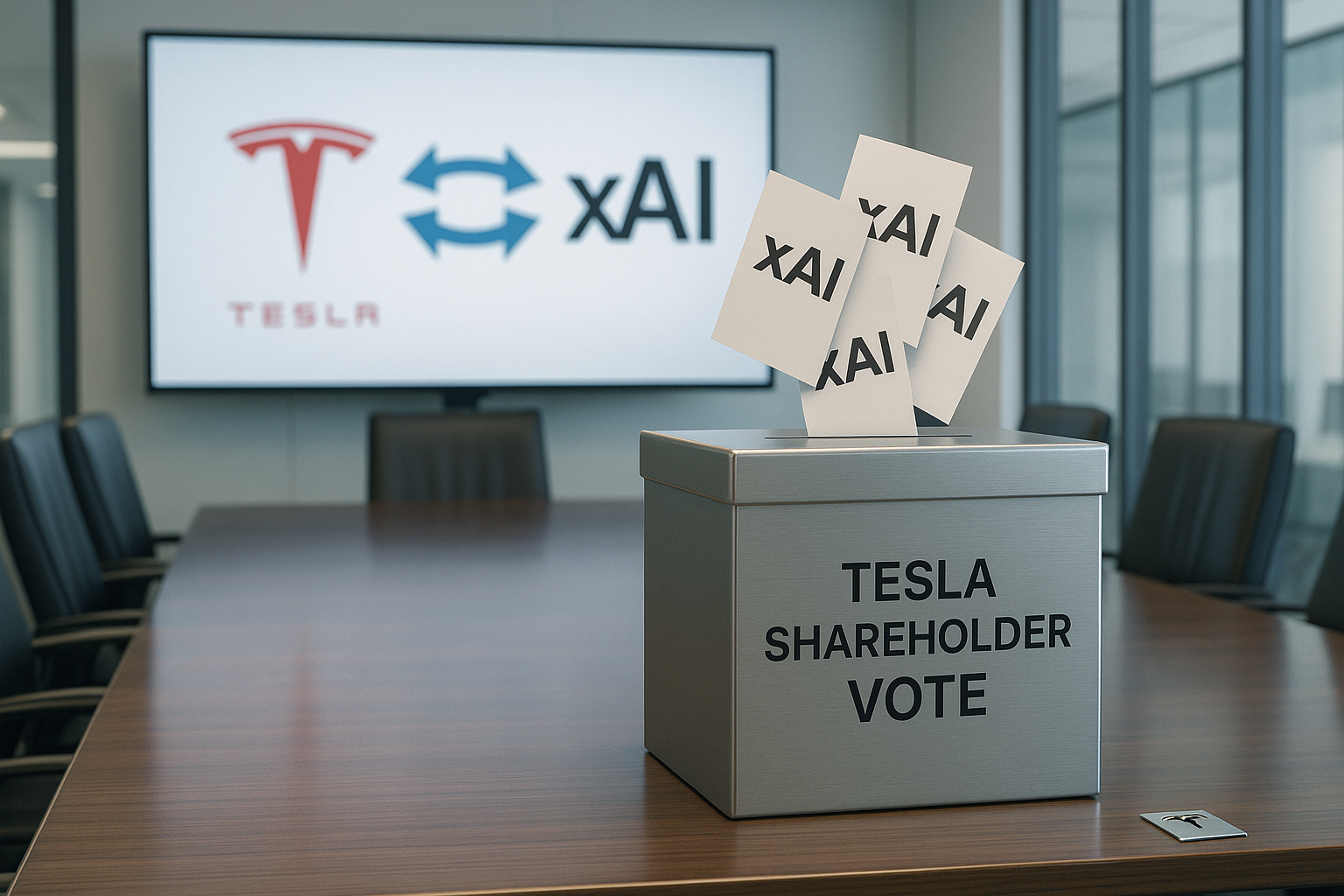Elon Musk is at it again, folks.
The billionaire entrepreneur—who apparently never sleeps and possesses an allergy to simple corporate structures—has now decided that Tesla shareholders should vote on whether their EV company should invest in his AI startup xAI. This comes hot on the heels of reports that SpaceX is preparing to pump a cool $2 billion into the same venture.
If you're feeling a bit dizzy trying to follow the money here, you're not alone.
The situation resembles nothing so much as one of those Russian nesting dolls (matryoshkas, for the culturally precise) where each business entity opens to reveal—surprise!—another Musk-controlled company inside. Tesla might invest in xAI, which recently merged with X (the platform formerly known as Twitter), while SpaceX is also investing in xAI, and meanwhile Tesla is already integrating xAI's Grok chatbot into its vehicles.
Got all that? There'll be a quiz later.
Having covered Musk's corporate maneuvers since the early Tesla days, I've noticed his companies increasingly function less as separate entities and more as planets in what you might call the "Musk solar system." The gravitational pull of his personality bends corporate space-time, causing these supposedly distinct businesses to orbit each other in increasingly complex patterns.
What's particularly striking here is the financial alchemy at work. X was valued at just $33 billion in the merger, a stunning $11 billion write-down from the $44 billion Musk paid for Twitter less than two years ago. Yet somehow xAI—a company barely a year old with a chatbot that's occasionally made headlines for all the wrong reasons—was valued at $80 billion in the same deal. And now reports suggest they're seeking funding at a staggering $200 billion valuation for the combined entity.
That's approaching Toyota territory, market cap-wise. For a social media platform and a chatbot.
Look, the cross-pollination between these companies goes deeper than just ownership. Tesla disclosed in April that xAI was a customer last year, racking up $198.3 million in expenses tied to commercial agreements with the carmaker. And here's the kicker—$191 million of that was xAI purchasing Tesla's Megapack batteries.
So Tesla sells batteries to xAI (run by Tesla's CEO), and now Tesla might invest in xAI, which is integrating its technology into Tesla vehicles. It's not just vertical integration; it's corporate origami.
The governance questions here are obvious, aren't they? When the same person controls multiple entities doing business with each other, how do shareholders in any one entity ensure they're getting a fair shake? Traditional corporate governance would call for independent board members and robust disclosure, but Musk has never been what you'd call a traditionalist in that department.
I spoke with several Tesla investors last week who seemed divided on the prospect. "Tesla needs to go all-in on AI to stay relevant," one institutional investor told me (requesting anonymity because they weren't authorized to speak publicly). Another shareholder was less enthusiastic: "It's starting to feel like my Tesla investment is just funding Elon's other projects."
There's a certain irony in Musk's newfound deference to shareholder authority. This is, after all, the same executive who once tweeted "funding secured" about taking Tesla private (landing him in hot water with the SEC) and who has dismissed shareholder litigation as a distraction.
The upcoming vote—if it materializes—will test whether Tesla investors are willing to further entangle themselves in the Musk multiverse. Are they buying into a visionary's integrated future or enabling a corporate structure that increasingly resembles a hall of mirrors?
I don't know about you, but I keep thinking about how companies used to just... make things. Cars. Software. Rockets. Now the innovation seems to be in corporate structure itself.
Maybe that's the real disruption here. Not the electric vehicles or the AI, but the way Musk has transformed traditional corporate boundaries into something more fluid—and more personally advantageous.
The shareholders will have their say. Whether that matters is another question entirely.
